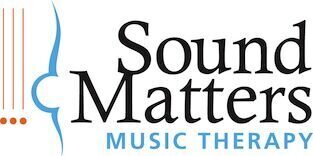Each Monday, I will be writing up a short, non-academic review of an article I’ve found interesting. These articles will be taken from music therapy peer-reviewed journals.
I have been really interested in professional (and personal, for that matter) development of late, and with this comes practicing instruments, among other things. I have to say I am pretty upset with myself that I haven’t progressed much on my ukelele since I’ve brought it home about a month ago. I am seeking out ways in which to improve my keyboard skills, and I’ve tried to carve out a time to practice guitar and ukelele on a regular basis.
I was interested in the article, “The Effect of Behavioral Contracting on the Acquisition of Guitar Performance Skills in a College-level Beginning Guitar Class,” by Lori F. Gooding, MM, MT-BC, NICU MT, in Journal of Music Therapy, XLVI (4), 2009, 323-338.
Firstly, though I intuited what “behavioral contracts” are, I wondered how this article defined them. On page 325, Gooding writes:
“One specific behavior altering technique used in [Cognitive Behavior Modification] is the behavioral contract. A behavioral contract can be defined as an agreement ‘that establishes the nature of the relationship, the objectives of the learning experience, the activities to accomplish the learning objectives, and the means by which the educational effort will be evaluated.”
Also, there are rewards or reinforcements upon which the person under the contract decides.
In this article, there were four groups of college-level, beginning guitar students. Two groups were control, two groups were experimental. Skill sets were evaluated, which included accuracy of chords, ability to stay with a metronome, and fluency between chords. Each group was evaluated in playing I-IV-V7-I chord progressions.
Groups 1 and 2 were the control, and groups 3 and 4 were the experimental. The rewards that the experimental group members chose were to be able to drop one of the two required performances at the end of the class.
Not surprisingly, the experimental groups did perform better upon evaluation than the control groups did.
So now it seems that I need to determine what my reward will be for implementing my own behavioral contract. Hm. I’m not one to delete things from my day, but I’m absolutely interested in adding things to enhance quality of life. Add 10 minutes to my day for creative writing? Songwriting? If, and only if, I can achieve some measurable success at guitar and/or ukelele in a given week?
Oh, the challenges of acquiring one’s own behavioral contract. 
*Coming up: The next Minneapolis Area Music Therapists meeting, held in Edina, Minnesota. Find more information here.
